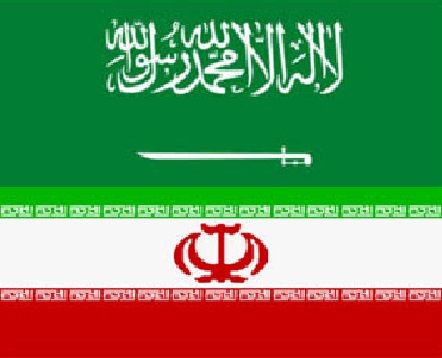Saudi Arabia In An Iran-Friendly World
30 October 2013
By Daniel Morillo
WASHINGTON D.C. — Saudi Arabia has once again stolen the international stage for its crackdown on women driving and their refusal of the UN Security Council seat. However, another issue persists in the background of all this latest Saudi discussion: Iran. Based on the hypothetical assumption that nuclear talks between the United States, its allies and the Islamic Republic of Iran progress to a point of renewed diplomatic relations and the end of sanctions, it would be the beginning of a new political environment in the Middle East.
The Saudi’s obviously do not want the West’s relationship with Iran to improve and they certainly do not want the Iranians to be able to continue to enrich uranium, even if it is just for energy. While the Saudis would be extremely angered by improved US-Iranian relations, this won’t lead them to endanger their special relationship with the US.
The Saudi’s can only push the US and the West away but so far. Though the two countries ideologies do not necessarily align, there is tens of billions in annual trade between them. This signifies that the relationship between the two nations goes deeper than common interests and ideology.
This does not include the strong history of US military presence in and cooperation with Saudi Arabia and the Gulf states. Such a military presence has protected Saudi Arabia from external threats as well as domestic ones for the past four decades. The Saudi’s are reliant on the United States in a similar manner to keep the unrest in Yemen from boiling over into southern Saudi Arabia through the controversial use of American drone strikes in Yemen.
Whilst the Saudi’s have been talking tough of late, it remains to be seen if their actions will follow their words. Their refusal of the Security Council seat and the implied frustration with American inaction in Syria suggest that the seeds of change have been planted for relations between the two countries. These developments do not suggest that the two nations are heading in polar opposite directions or that they will never be “allies” again, but rather it indicates that Saudi Arabia is willing to stand up to the United States in protest of its foreign policy decisions. This sort of outward objection is unprecedented between the two countries. To go so far as to refuse a highly coveted seat on the Security Council because the Saudi’s are upset things are not going their way is rather childish and petulant.
This unexpected behavior can only get worse when nuclear talks with Iran move forward. Saudi Arabia has enjoyed geopolitical dominance in the Gulf and the MENA (Middle East North Africa) region as a whole for decades. The Saudi’s have thrown money at conflicts and governments to ensure things go their way and have been successful in bringing the United States to fight their regional conflicts for them when their petrodollar did not do the trick. Case and point: Iran, yet again. This became evident when Wikileaks documents shown that the Saudi’s asked the United States to attack Iran before it is “too late” and the Iranians become too powerful.
A globally respected and un-sanctioned Iran presents competition for regional power and hegemony, while also introducing another Gulf oil supplier whose exports have been limited due to sanctions in recent years. In theory, unimpeded Iranian oil exports would increase global supply and drive oil prices down. In the long term, lower oil prices means lower incomes for Saudis and all of the sudden the high standard of living that has come to be the norm for Saudis would be threatened. A situation like this would be completely unacceptable to the Kingdom and as a result, it can be expected that the Saudi’s will do everything in their power to prevent Western reconciliation with Iran.
In short, an Iranian détente produces three possible outcomes for Saudi Arabia:
- Increased security concerns- reconciliation will most likely result in the Saudi’s acting in a manner contrary to US goals and policy in the region.
- Increased geopolitical competition- the two geographically largest countries in the region struggle for power and influence could lead to an even more militarized Persian Middle East and further support of opposing sides in proxy wars such as Syria.
- Economic instability- Iranian oil flooding World oil markets would devalue Saudi oil and push prices down, consequentially weakening Saudi Arabia’s economy long term.
While the global community watches Iranian nuclear talks with anticipation, the Saudi’s have the most to lose in Geneva. Their already questionable behavior will most likely turn more erratic as domestic problems in conjunction with the external pressure of a new Iran push the Kingdom to make increasingly rash decisions on the global stage. This scenario is hypothetical of course, and Iranian sanctions have not been lifted nor have they regained the respect of the international community. Yet the stage has been set, and now the waiting game begins.
Daniel Morillo is a Security and Military Policy Analyst at the Institute for Gulf Affairs.



Comments are closed.